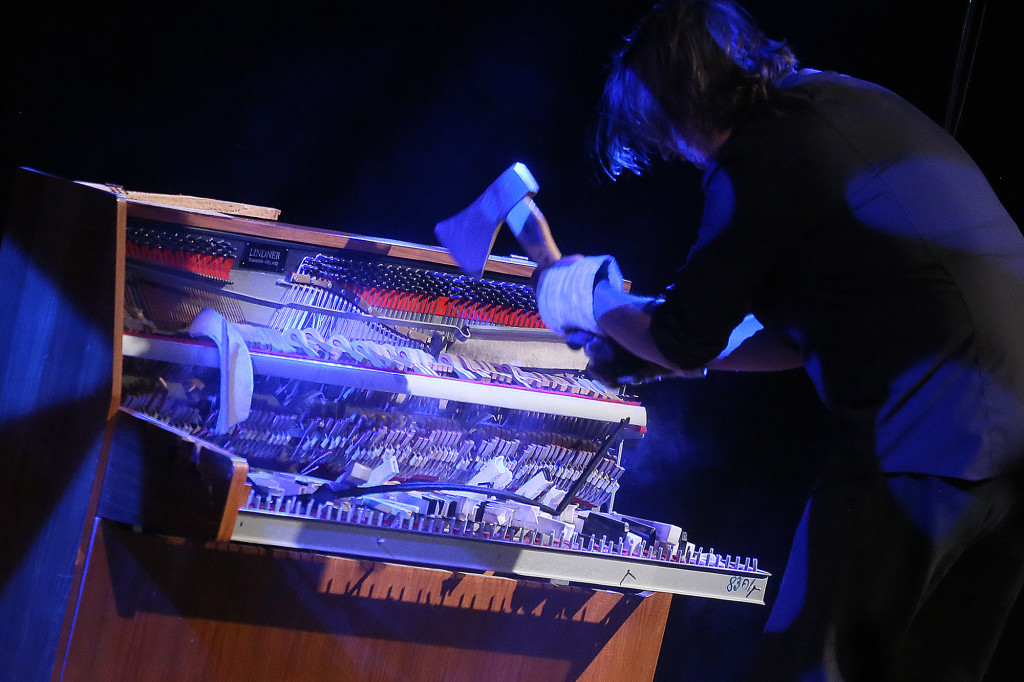Mr. Meinecke, how does a musician grapple with war?
Aesthetically, the war only provides a problematic blueprint. We don’t want to make use of fire and metal, but of discourse. So what else is there? There’s the opposite of war – peace – and the genre of the protest song, but that’s really inflexible. What other bastards did the war father? Mainly the noise. That’s what the Italian futurists in particular addressed: They aesthetically employed the noise of big cities and battlefields. They transferred noise as a by-product of war to the fine arts.
We’re particularly interested in Luigi Russolo, who built a relevant device. He called it intonarumori, the noisemakers. And we approached it as a band that sees itself predominantly as deconstructionist. Our concert at HKW is called Ein Haufen Scheiß und ein zertrümmertes Klavier (A Pile of Crap and a Shattered Piano), which is a line from the song Die Liebe einer Blondine (Loves of a Blonde), that alludes to the title of a film by Miloš Forman. We quote ourselves by putting the title into action, smashing the chief instrument of the bourgeoisie. But it’s a metaphorical act, a reference.
The futurists stood for the ambivalence of the modern age, for a shift to the destructive. Is your work also about not suppressing this?
The Italian futurists in particular possessed this ominous element, and many of its members were united by their enthusiasm for war. We can’t factor out this ambivalence in art.
Many parallels have been drawn with 1914 and 2014. Is history really at risk of repeating itself?
We’re living in an era of mobilization and propaganda. Even relatively enlightened people are lapsing into corresponding rhetoric. I’ve observed this since the 1990s, when people were saying Yugoslavia must be broken up; we need a hegemonic influence in the Balkans again. Germany has made itself powerful and big again, which I find very alarming. You’re on your own today as a pacifist, because there’s always a greater evil against which you have to defend the slightly lesser evil. Rationalizations like that have always instantly woken up my inner Peter Handke. Ever since 1914/2014, familiarity with the alleged fact – that we are at war – has been insinuated. That goes against my grain.
The title 100 Years of Now also has oppressive implications. The past could become overly powerful. How do we escape it, how do we find something new?
We’ve always dealt with it in our music. In 1981, we had a song called “Otto Hahn in Stahlgewittern.” It’s about generating nuclear energy, but also about an admiration for Ernst Jünger, which we filtered out in all its ambivalence. For us, peace movement songs were aesthetically platitudinous and very self-righteous; we always wanted to allow the beautiful and the ugly alike in our various references. So I’d say that the past may be ubiquitous, but it’s not overpowering. In aesthetic evolution, we can seek to gain a new perspective.
